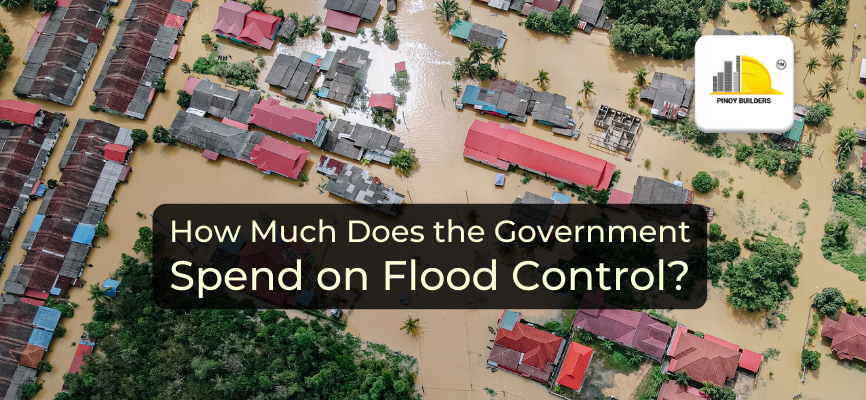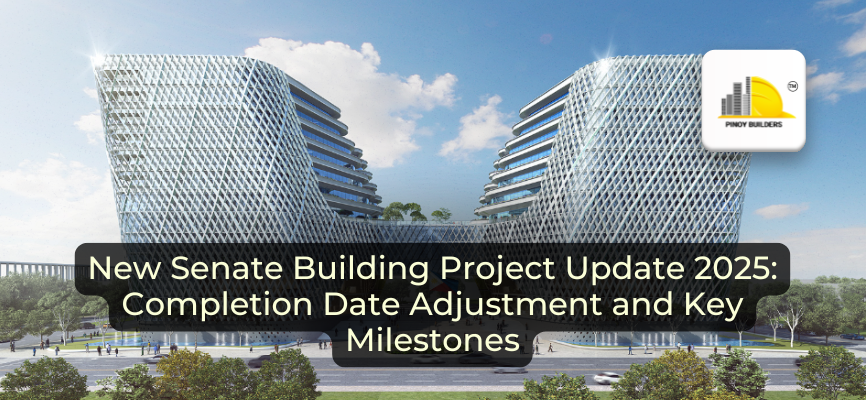The Philippines is no stranger to flooding. Flooding in the country is a common issue, and while many assume this may come because of the Philippines being an archipelagic, tropical country that experiences a long, rainy season, flooding in the Philippines is also caused by a significant lack of flood facilities and drainage systems, especially in the rural locations away from densely populated areas.
Effective flood control facilities like flood control channels and water bank facilities were made a priority by past administrations before, and it has significantly improved the development of flood planning in urban areas of the Philippines, such as the major cities in Metro Manila. The current administration of President Ferdinand Marcos Jr. wants to improve the country’s water-impounding facilities by beginning the construction of many more dikes, waterways, and spillways around the country.
As the rainy season continues to cause heavy downpours and floods in the country, it is important that the government continues to improve on its flood pre-planning. In this article, we will discuss the flood control projects that the current government is working on.
Flood Control Projects In The Philippines

Image from PhilStar
As floods have been a recurring and serious problem in the country for a long time, many previous administrations have made flood preparedness one of their biggest objectives. After the tragedy caused by tropical cyclone Ondoy back in 2009 that struck and submerged most of the areas in Metro Manila under a month’s worth of rain in under just one day, the government had become keen on improving the flood facilities in the Philippines, especially in the many major cities of the country.
Because of Ondoy, the Philippines embarked on a major Metro Manila Flood Management Project in partnership with the World Bank and the Asian Infrastructure Investment Bank (AIIB). The project, worth $500 million, included the construction of 20 water pumping stations in many cities in the capital region, including Makati, Malabon, Taguig, San Juan, Pasay, Manila, and many more. In this project, 36 pre-existing pumping stations were also modernized, along with the development of critical waterways necessary in the area. This project is expected to reach completion by next year, 2024.

Image from Official Gazette
The following administrations continued to work on the flood preparation of the country. Projects like those of former president Rodrigo Duterte’s Build, Build, Build program involved the construction of flood control facilities like the ₱7 million peso worth of flood control projects built in South Cotabato in 2020. Projects like these are meant to reduce the damaging aftermath of flooding in the country that can destroy millions of pesos worth of properties and thousands of lives.
The current administration of President Ferdinand Marcos Jr. is also working on reducing flooding in the country. In an interview with PhilStar, Marcos states that he wants to provide more flood control facilities in the country if needed.
“[At] pinapatignan ko, kung papaano ang kailangan– ano pa ‘yung idadagdag nati. Malaki– bilyon-bilyon na ang ginastos natin para maglagay ng dike, maglagay ng mga waterway, mga spillway, pati pumping station dito sa NCR.” he said.
According to Marcos, these projects are not only meant to reduce the flooding in the country, but they will also improve the water collection of the country, which can then benefit local agriculture and result in food security. The benefits of these additional flood control facilities are also not exclusive to urban areas, as they are also meant to protect those who live near rivers and other coastal areas in the country.
According to the Presidential Communications Office, Department of Public Works and Highway (DPWH) flood control projects in Metro Manila will cost around ₱351 billion. According to Marcos, the Water Resources Management Office’s projects should include the construction of additional water-impounding facilities so that the country can use the collected water for agricultural efforts.
Flood Control Facilities In The Philippines
There are many flood control projects recently completed and currently underway. The current administration of President Ferdinand Marcos Jr. has included water management and flood control as one of its top priorities as included in the Build, Better, More program. As the Philippines continue to experience the adverse effects of global warming, in addition to the yearly heavy rains, flood control projects are a necessity that should not be overlooked.
References:
- Asian Infrastructure Investment Bank. (n.d.). Philippines: Metro Manila Flood Management Project – Profiled Project – Media Center – AIIB. Asian Infrastructure Investment Bank. Retrieved July 31, 2023, from https://www.aiib.org/en/news-events/media-center/profiled-projects/projects/4-Philippines-Metro-Manila-Flood-Management-Project.html
- DBM. (2022, August 26). P453 billion tagged as climate-related expenditure for 2023. DBM. Retrieved July 31, 2023, from https://www.dbm.gov.ph/index.php/secretary-s-corner/press-releases/list-of-press-releases/2358-p453-billion-tagged-as-climate-related-expenditure-for-2023
- de Villa, K., & Generalao, M. (2019, May 25). Building a flood-resistant PH | Inquirer Business. Inquirer Business. Retrieved July 31, 2023, from https://business.inquirer.net/271307/building-a-flood-resistant-ph
- Philippine Star. (2023, June 14). Marcos wants more water impounding facilities outside NCR to control floods. Philippine Star. Retrieved July 31, 2023, from https://www.philstar.com/headlines/2023/06/14/2273802/marcos-wants-more-water-impounding-facilities-outside-ncr-control-floods
- Philippine Star. (2023, July 3). MMDA flagged over 33 flood control projects | Philstar.com. Philippine Star. Retrieved July 31, 2023, from https://www.philstar.com/headlines/2023/07/03/2278247/mmda-flagged-over-33-flood-control-projects








